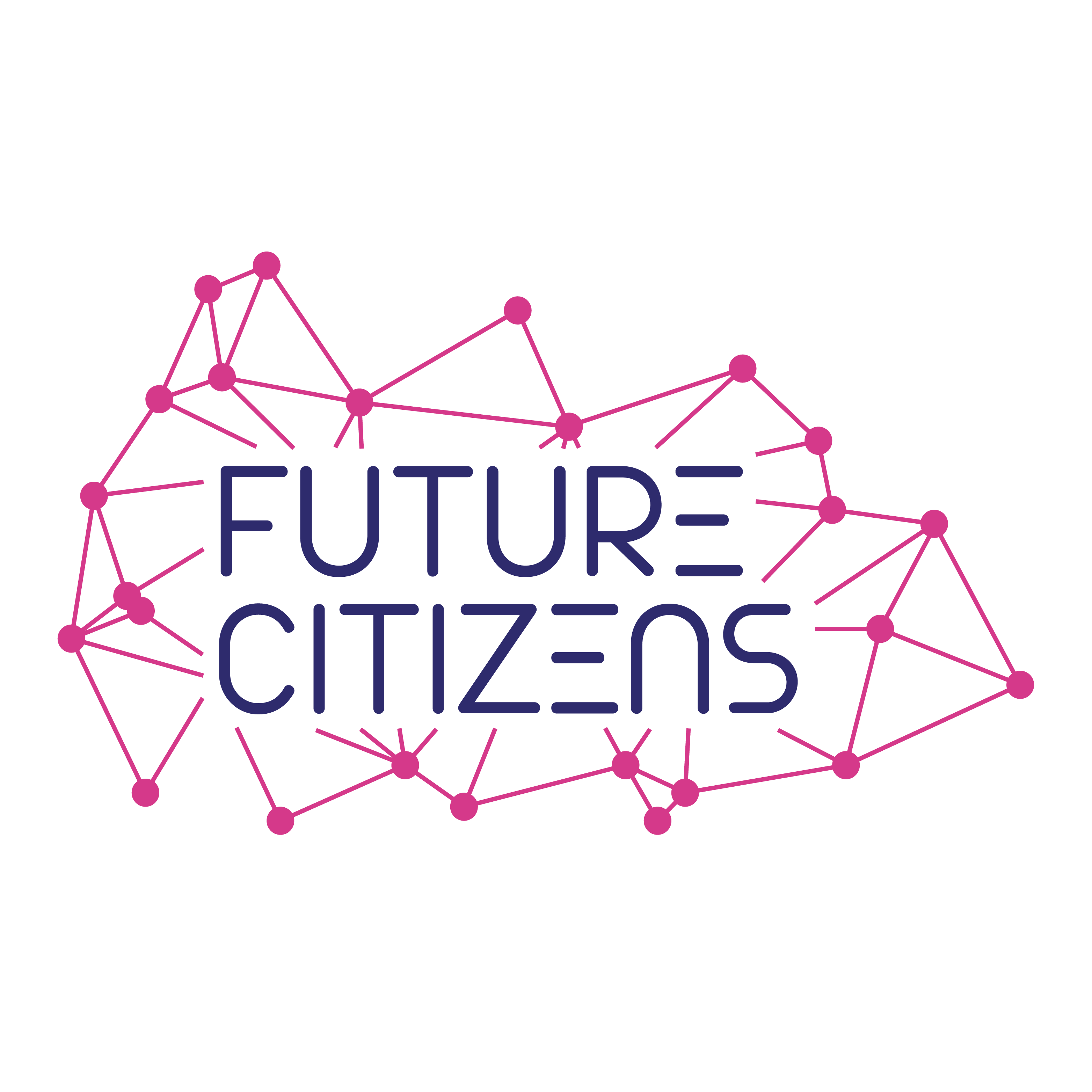Urban areas serve as the focal points of human activity, fueling economic advancement, cultural interaction, and creative breakthroughs. Yet, the swift expansion of cities in recent years has presented unparalleled hurdles, notably in terms of sustainability. In light of these obstacles, inventive remedies are surfacing, employing technology to foster the development of more intelligent, eco-friendly urban centers across various sectors. This article aims to spotlight sustainability in the tourism industry, specifically exploring the integration of blockchain technology to enhance smart tourism practices as a case study.
Empowering Sustainability: Smart Tourism as a Catalyst for Positive Change
Currently, there is no universal definition of smart tourism. Gretzel et al. (2015) describe it as a system leveraging technology to enhance efficiency, sustainability, and competitiveness in tourism. Sustainability and competitiveness are crucial, aiming for a balanced approach to economic development, environmental conservation, and social justice. Neuhofer et al. (2014) define smart tourism as a framework using data analytics and feedback mechanisms to enhance tourist experiences and destination competitiveness. However, both definitions emphasize the use of technology and innovation to improve the tourism experience for visitors and locals.
To ensure the success of smart tourism initiatives and establish benchmarks for evaluation, various facets must be considered. Otwicz et al. (2022) identified 14 integral dimensions of smart tourism, providing a comprehensive framework for planning, implementation, and monitoring. And sustainability emerges as a key factor, underscoring smart tourism’s role in fostering long-term sustainability in the tourism sector.

Source: Otowicz et al., (2022)
Navigating the Challenges: Addressing Current Smart Tourism Issues
Despite the growing interest in smart cities and tourism destinations for their potential to improve efficiency and sustainability, integrating technology in these areas poses risks that need careful attention. Common issues include data privacy and security, digital divide, and integration challenges.
Data privacy and security concerns loom large in smart tourism due to the interconnected nature of devices, sensors, and vehicles via the Internet. With a significant volume of data being generated, there is a heightened risk of misuse, which can have serious implications for individuals and society at large. For example, surveillance and tracking mechanisms, often facilitated through video surveillance systems, aim to provide real-time information on transportation, safety, and navigation, but they also raise red flags regarding privacy invasion. And in fact, tourists may lack awareness of data collection practices, potentially leading to privacy violations if their data is shared without consent, opening the door to data breaches. Such breaches, stemming from human error or targeted cyberattacks, can result in identity theft, financial losses, and reputational damage.
The digital divide, rooted in unequal access to and utilization of information and communication technologies (ICTs), presents a multifaceted challenge in tourism. Access encompasses the availability of digital tools like smartphones and internet, influenced by socioeconomic factors and geography. This disparity restricts certain demographics from accessing tourism services, deepening social inequalities. Consequently, smart tourism destinations face diminished competitiveness and revenue potential, alongside heightened social tensions due to marginalized groups feeling excluded from the benefits of technological advancements.
Integration in smart tourism destinations involves the collaboration of stakeholders such as government agencies, tourism businesses, visitors, and local communities, along with the integration of diverse technologies. However, this process often encounters challenges stemming from conflicting priorities and resources among stakeholders, as well as mismatches among technologies. These issues can result in inefficiencies, service gaps, and ultimately diminish the competitiveness and satisfaction of visitors.
Revolutionizing the Tourism Sector: Blockchain as a Solution for Current Smart Tourism Issues
Smart tourism, while fostering sustainability within the tourism industry, confronts several challenges necessitating resolution for the attainment of absolute sustainability. In this context, blockchain technology emerges as a promising solution to revolutionize the sector. Blockchain is a distributed, public ledger of transactions that is secure, trustworthy, and self-auditing (Swan, 2015). This technology revolutionizes transactions by enabling secure, transparent peer-to-peer exchanges without intermediaries. Its key characteristics have propelled its popularity and disruptive potential across industries:
- Decentralization and distribution: All network nodes maintain and update the ledger independently through a consensus mechanism.
- Immutability: Recorded data remains unchanged once accepted by the network.
- Agreed by consensus: Blocks require approval from specified nodes before being added to the ledger, often achieved through mechanisms like Proof of Work (PoW) or Proof of Stake (PoS).
- Transparency: All transactions are accessible to participating nodes for validation.
- Security: Robust cryptographic algorithms ensure transaction integrity and authenticity.
- Traceability: Blockchain’s distributed ledger allows tracking of transactions from source to destination.
Blockchain technology is being widely applied in the tourism industry, including areas like travel booking, customer experience enhancement, transparent supply chain management, and secure payment processing. Kwok and Koh (2019) present a mind map in their research, ‘Is blockchain technology a watershed for tourism development?’, illustrating various key applications of blockchain in tourism.

Source: Kwok and Koh (2019)
Blockchain finds diverse applications in tourism, including digital payment, loyalty programs, and identity management. Companies like Ariva Digital, Singapore Airlines KrisFlyer, and Winding Tree are leveraging blockchain solutions in the industry. For example, Ariva Digital operates as a decentralized travel portal on the Binance Smart Chain, facilitating hassle-free cryptocurrency transactions and offering a range of services from reservations to virtual travel experiences. Furthermore, The Singapore Airlines KrisFlyer is pioneering blockchain-based loyalty programs for frequent flyers, ensuring secure rewards management.
Considering the core challenges encountered in smart tourism such as data privacy and security, digital divide and integration, the application of blockchain technology can address these issues. More details are elaborated as below:
Data privacy and security: Blockchain technology offers a solution to privacy challenges in tourism by providing a privacy-by-design solution. Its decentralized architecture makes cyber attacks challenging, while encrypted data ensures protection from unauthorized access. Transparent transactions can also reduce fraud risk, and immutability guarantees data security. Or smart contracts automate verification, minimizing human error. Take Digital Identity (Digital ID) as an example. Digital ID on blockchain establishes a secure and decentralized identity for individuals using public and private keys. The public key is pseudonymous, shareable, and linked to a unique address, ensuring secure transactions. Private keys control access to digital assets. This setup empowers users to manage their personal information securely. In smart tourism, blockchain-based Digital ID can safeguard the information of tourists, allowing controlled sharing for travel tasks and payments while reducing privacy concerns. This decentralized approach thwarts cyberattacks and fraud, ensuring encrypted, transparent, and traceable transactions.
Digital divide: With the invention of blockchain technology, it offers a solution by enabling decentralized systems, reducing reliance on intermediaries. Precisely, blockchain can enable secure and transparent transactions without the
need for a middleman, thereby reducing the dependence on centralized entities and lowering the costs associated with accessing financial services. This empowers small businesses to connect directly with travelers, ensuring secure transactions, trust, and economic growth in untapped regions. Furthermore, the impacts of blockchain extend to regional and national levels, especially in developing areas like Africa. The growing crypto market in this region stems from its unbanked population, cross-border transaction needs, and accessible mobile technology. An illustrative instance highlighting the potential of blockchain and cryptocurrency in promoting local tourism can be seen in the case of El Salvador, which recently became the first country to recognize Bitcoin as a legal tender. The adoption of Bitcoin as legal tender in El Salvador has resulted in a significant increase in the tourism industry of this country, as reported by Morena Valdez, the Minister of Tourism. The industry has experienced a growth of over 30% since the implementation of the Bitcoin law in September 2021 (Helen Parts, 2022). The adoption of Bitcoin as legal tender in El Salvador has had a noticeable impact on the inflow of tourists, particularly from the United States.
Integration: Blockchain technology offers a solution by creating a global database for accurate and unbiased information about suppliers and market users. This enables collaborative sharing of real-time data among tourism businesses, service providers, and government agencies, facilitating seamless communication and updates for travelers. The database can be accessed and modified by authorized parties within the network, guaranteeing that all stakeholders have access to the most up-to-date and accurate data. For instance, blockchain-enabled platforms can integrate flight, hotel, and tour package bookings, facilitating seamless communication between service providers and enabling real-time updates for travelers. There are several real-world examples demonstrating the application of blockchain to solve integration issues in smart tourism. For instance, in the year of 2016, the Dubai government launched the “Dubai Blockchain Strategy” with the aim of becoming the world’s first blockchain-powered city by 2020 (Smart Dubai, n.d). One example of the implementation of this strategy in the tourism industry is the Dubai Tourism Blockchain Marketplace in 2018. The Dubai Tourism Blockchain Marketplace planned to add an “additional distribution channel for hotels” (Molly Jane Zuckerman, 2018) by 2020, connecting all tourist organizations involved in planning a trip.
In conclusion, the future of smart cities hinges on their ability to integrate technology and sustainability, with blockchain playing a pivotal role in revolutionizing the tourism industry, specifically in smart tourism. By leveraging blockchain, cities can address key challenges such as data privacy, digital divide, and integration issues, while fostering transparency, efficiency, and inclusivity in tourism practices. As urban areas continue to evolve, smart cities will serve as models of innovation and sustainability, driving economic growth and enhancing the quality of life for residents and visitors alike.
For further reading, please find it through the article Unleashing the Power of Blockchain: Pioneering Sustainable Smart Tourism.
REFERENCE
- Gretzel, U., Sigala, M., Xiang, Z., & Koo, C. (2015). Smart tourism: foundations and developments. Electronic Markets, 25(3), 179–188. https://doi.org/10.1007/s12525-015-0196-8
- Helen Parts. (2022). Tourism in El Salvador up 30% since Bitcoin adoption, minister says. CoinTelegraph. https://cointelegraph.com/news/tourism-in-el-salvador-up-30-since-bitcoin-adoption-ministersays#:~:text=According%20to%20Salvadoran%20Tourism%20Minister,increased%20in%20November%20and%20December
- Kwok, A. O. J., & Koh, S. G. M. (2019). Is blockchain technology a watershed for tourism development? Current Issues in Tourism, 22(20), 2447–2452. https://doi.org/10.1080/13683500.2018.1513460
- Molly Jane Zuckerman. (2018). Dubai To Launch Blockchain Marketplace For Tourism Industry ‘To Be 10 Years Ahead.’
CoinTelegraph. https://cointelegraph.com/news/dubai-to-launch-blockchain-marketplace-for-tourism-industry-to-be-10-yearsahead - Neuhofer, B., Buhalis, D., & Ladkin, A. (2014). A Typology of Technology-Enhanced Tourism Experiences. International Journal of Tourism Research, 16. https://doi.org/10.1002/jtr.1958
- Otowicz, M. H., Macedo, M., & Biz, A. A. (2022). Dimensions of Smart Tourism and Its Levels: An Integrative Literature Review. Journal of Smart Tourism, 2(1), 5–19. https://doi.org/10.52255/smarttourism.2022.2.1.2
- Smart Dubai. (n.d.). Dubai — The First City on the Blockchain. Retrieved May 14, 2023, from https://www.digitaldubai.ae/docs/default-source/publications/dubai—the-first-city-on-blockchain_jan-2017.pdf
- Swan, M. (2015). Blockchain: Blueprint for a New Economy (1st ed.). O’Reilly Media, Inc.






